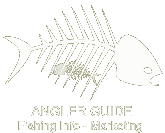 |  |
|
Navigation - Business - Great Lakes - Great Plains - Northeast - Northwest - Rocky Mountains - Southeast - Southwest - Technology - Trophy Catches
|
Zequanox is a natural product that was approved by the Environmental Protection Agency for use in controlling zebra and quagga mussels that attach, colonize and clog closed industrial water systems such as power plant pipes. Most of the early and recent research on Zequanox has been on treatments to control mussels in these closed systems, but little research has been conducted to evaluate its potential for controlling mussels and their veligers in open waters. The research at Lake Carlos is part of a research grant funded by the Environmental Protection Agency's Great Lakes Restoration Initiative to assess the safety and efficacy of this product for open water use. "The main objective of this research is to evaluate the potential of Zequanox to reduce the impacts of zebra mussels on native mussels," said Nathan Olson, DNR aquatic invasive species specialist. "In addition, this research is the first step to determine the potential of Zequanox to treat isolated, localized areas such as those around docks and boatlifts in waters where zebra mussels are newly discovered." Last fall, the USGS and DNR placed zebra mussels collected from Lake Carlos into holding cages that were then submerged in different locations in the lake. Over the winter, the zebra mussels attached to aluminum mesh trays within the cages. Beginning Aug. 15, the mesh trays are being removed from the lake and placed inside a 34-foot research trailer parked on the shores of Lake Carlos within the park. Inside the trailer, the cages are being exposed to Zequanox and then placed back into the lake. After four weeks, a post-treatment evaluation will be conducted to determine the effectiveness of the treatments. Several species of native mussels are threatened or endangered, and zebra mussels do not help with efforts to recover their populations. The U.S. Fish and Wildlife Service commonly uses cages to propagate native mussels, but zebra mussels attach to the cages and stop water from flowing to the native mussels. The USGS would like to determine if Zequanox can be used as an aid in freshwater mussel propagation. For more information on Zequanox and the research project, visit http://cida.usgs.gov/glri/projects/invasive_species/zm_control.html.
Comments
«Back | News Home
| |||||||||||||||||||||||||||||||||||